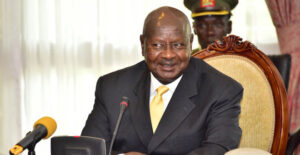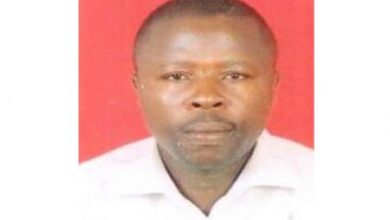Open letter to President Museveni on corrupt officials
Thank you for your continued commitment to our nation’s development.

Op-Ed: During the recent government retreat in Kyankwanzi, under your leadership, several critical resolutions aimed at intensifying the fight against corruption were discussed.
A significant step taken was the emphasis on establishing specialized units under the State House, including the Tax Investigations Unit and the Accountancy and Audit Unit, to oversee accounting officers. These units are tasked with addressing pressing issues such as tax evasion, under-declarations, and the misappropriation of funds.
You also highlighted the need for stricter judicial measures, such as abolishing bail for individuals accused of serious crimes like corruption. Given that corruption costs Uganda approximately UGX 9.7 trillion annually, you stressed that eradicating this vice is essential for effective service delivery and socio-economic transformation. The retreat featured candid discussions among cabinet ministers and permanent secretaries, focusing on areas of underperformance and identifying practical solutions to enhance governance and accountability. The outcomes of these discussions are highly anticipated and expected to lead to significant improvements in the country’s governance.
As a concerned citizen, I wholeheartedly appreciate the concerted efforts by the office of the IGG, the State House Anti-Corruption Unit, and other bodies. However, the situation remains alarming. Many civil servants seem indifferent to the consequences of corruption, despite arrests and crackdowns. The vice has penetrated deeply into various sectors, creating a pervasive culture of corruption.
To me, corruption is a scourge that has long plagued Uganda, hindering development, eroding public trust, and undermining the effective delivery of public services. Your commitment to eradicating corruption is clear and commendable. However, to make significant strides in this battle, bold and innovative measures are needed to support the existing anti-corruption units.
One strategic proposal is the deployment of military personnel in key government roles, a strategy that has proven effective in other parts of the world. In countries like Egypt, military officers have been deployed in critical government positions, particularly in infrastructure development and public administration, where their discipline and adherence to the chain of command have ensured efficiency and reduced corruption. Similarly, in Indonesia, the military has played a vital role in maintaining order and ensuring transparency in public projects, particularly in rural areas where corruption was rampant.
The Ugandan military is renowned for its discipline, integrity, and strong sense of duty. Their outstanding performance in the Engineering Brigade and rescue teams demonstrates their ability to respond swiftly to national concerns. By recruiting them as accounting officers, auditors, and procurement officers in government offices, we can enhance transparency and accountability in financial transactions. Their training and hierarchical structure make them less susceptible to corrupt influences, ensuring diligent oversight of public funds.
Placing military personnel in strategic positions such as permanent secretaries and public service payroll managers would ensure meticulous management of public resources and payroll systems. Their rigorous training and commitment to duty would deter fraudulent activities and ensure that public servants are remunerated fairly and promptly. Deploying military officers as district service commissioners, CAOs, town clerks, and sub-county chiefs would bring a heightened sense of accountability and efficiency to local government administration. Their presence would deter corruption at the grassroots level, ensuring that development funds are used appropriately and public services are delivered effectively.
The advantages of military personnel in civil roles are manifold. In Brazil, military personnel have been successfully integrated into public administration roles, particularly in combating crime and corruption in regions plagued by drug trafficking. Their deployment has been instrumental in restoring order and ensuring that public resources are managed transparently. Unlike civilian officials, military personnel can be held accountable through the court-martial system, a swift and decisive form of justice that would serve as a strong deterrent to corruption. The military ethos of discipline, loyalty, and integrity would permeate the administrative structures, fostering a culture of accountability and transparency.
This shift would not only deter corrupt practices but also restore public confidence in government institutions. Additionally, military personnel are trained to operate efficiently under pressure and meet stringent deadlines. Their involvement in civil administration would streamline processes, reduce bureaucratic delays, and enhance the overall effectiveness of government operations.
Employing military spies and external auditors could further enhance oversight. These officers could conduct covert inspections and audits, ensuring that public officials adhere to ethical standards and that public funds are used appropriately. A dedicated mobile force could conduct surprise inspections of government offices and institutions, keeping officials vigilant and deterring corrupt practices by maintaining an element of unpredictability.
Establishing a robust hotline system for whistle-blowers, coupled with a rapid response team, would ensure that reports of corruption are addressed immediately. This proactive approach would deter potential offenders and provide a safe channel for citizens to report corrupt activities without fear of reprisal. Swift action upon receiving whistle-blower reports would demonstrate the government’s commitment to fighting corruption, building public trust and encouraging more citizens to come forward with information on corrupt activities.
To ensure swift and decisive action against corruption, the introduction of specialized courts to handle corruption cases expeditiously is proposed. These courts would ensure that justice is served without the lengthy delays associated with traditional legal processes. Individuals found guilty in these courts should face immediate penalties, including removal from office, imprisonment, confiscation, and auctioning of their property to refund the government. Additionally, they should be permanently barred from working for any government entity. Introducing a legal standard that shifts the burden of proof to the accused in corruption cases would expedite the judicial process and deter potential offenders.
Your Excellency, the strategic deployment of military personnel in key administrative roles, coupled with the introduction of military spies, external auditors, a mobile inspection force, immediate response mechanisms, and specialized courts, represents a formidable strategy to combat corruption in Uganda. By leveraging the discipline, integrity, and accountability inherent in the military, we can create a robust framework for transparent and efficient governance. Implementing these measures would not only deter corrupt practices but also restore public confidence in government institutions, fostering a culture of accountability and trust.
Thank you for your continued commitment to our nation’s development.
The author is Asaph Blair Gumisiriza (Bitaraabe), a concerned citizen and a resident of Ntambazi in Kazo District.
Disclaimer: As UG Reports Media LTD, we welcome any opinion from anyone if it’s constructive for the development of Uganda. All the expressions and opinions in this write-up are not those of UG Reports Media Ltd. but of the author of the article.
Would you like to share your opinion with us? Please send it to this email: theugreports@gmail.com.






